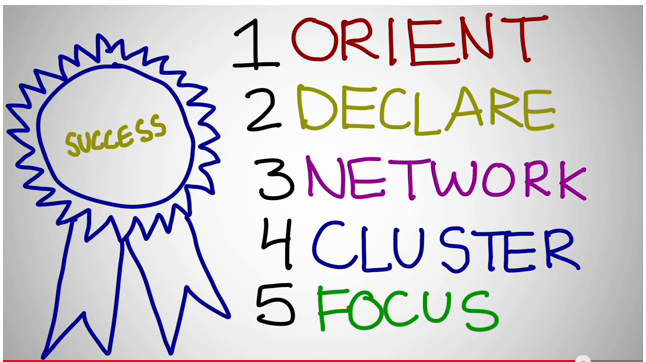#rhizo14 will inevitably be an exploration of the possibilities of open learning as well as a space for considering rhizomatic learning. One of the challenges of rhizomatic learning is that it’s new for many. When most people think of the word course, they think of a set of objectives that contain the canon of a particular field with a teacher as the arbiter of ‘learning’. Even if people are comfortable looking to themselves as being responsible for tracking their learning they may not have the basic language or literacies (or technologies) to be able to start along with others.
So we need some structure, at least in the beginning, to make sure that everyone gets to play. Some of this structure can take the form of remediation… where you prepare answers to simple questions that allow newcomers to help themselves. We also need to have an effective way for people to be able to ask the community simple questions and ways to effectively mentor people to a place where they can be fully contributing members of the community.
An Unravelling
The fine folks at P2PU have directed me to the unhangout platform as a possible method for doing live sessions. The idea of having an unconference model for each of the six weeks is very appealing, but i think it would overly favour folks who’ve been working with rhizomes for a long time. So I’m suggesting something that I’m going to call ‘an unravelling’ until someone tells me what someone who thought about it before me called it :). I’m sure someone else has done it… but I haven’t found it.
Week 1
The first week will be very structured. Some foundational readings, a little bit of talk about rhizomes and Deleuze and Guattari (though not much) and a strong focus on giving people specific things to do. Write an introductory blog post, state what your goals are going in to the course, post your blog post by Tuesday… whatever. By the end of week 1, people should be able to tell themselves “yes, i have done the thing i was supposed to do”. The live session(s) will have specific topics delineated for people to join (though we might have a pre-session with interested parties to workshop what those might be). This is the ORIENT part of the process.
Week 2
The second week introduces responsibility but checks in with folks to make sure that people are understanding the orientation parts of the project. Perhaps this would work well with some specifically identified mentors who could lead breakout sessions and help people from a tech/custom/topic perspective to keep conversations on track and facilitate reporting form each of the groups. This is DECLARE week… in order to be a fully functioning participant (and no one is saying you need to be) you should be speaking from whatever platform you like at this point. We’ve unravelled the structure and little… but still lots of support.
Weeks 3 – 5
I’m thinking of these as NETWORK and CLUSTER weeks. We should be able to run unconference type sessions in the hangout and folks should have some sense of what parts of the discussion they are interested in. They might find people to work on a project with, they might find critical friends who will help them push their work further… lots of different stuff. This is where the course starts to really unravel.
Week 6
FOCUS week. I see this week as full of people’s final projects. What have you worked towards during the course? What have you come up with? What practical application do you see (or not see) for rhizomatic learning. Where will it not work? How does it need to be combined with other things? We have unravelled entirely at this point. The community should be the curriculum at this point.
How does that sound?
note: the Orient, Declare, Network, Cluster, Focus comes from early MOOC work in 2010 by Sandy McAuley, Bonnie Stewart, George Siemens and I. Here’s the video. http://www.youtube.com/watch?v=r8avYQ5ZqM0
